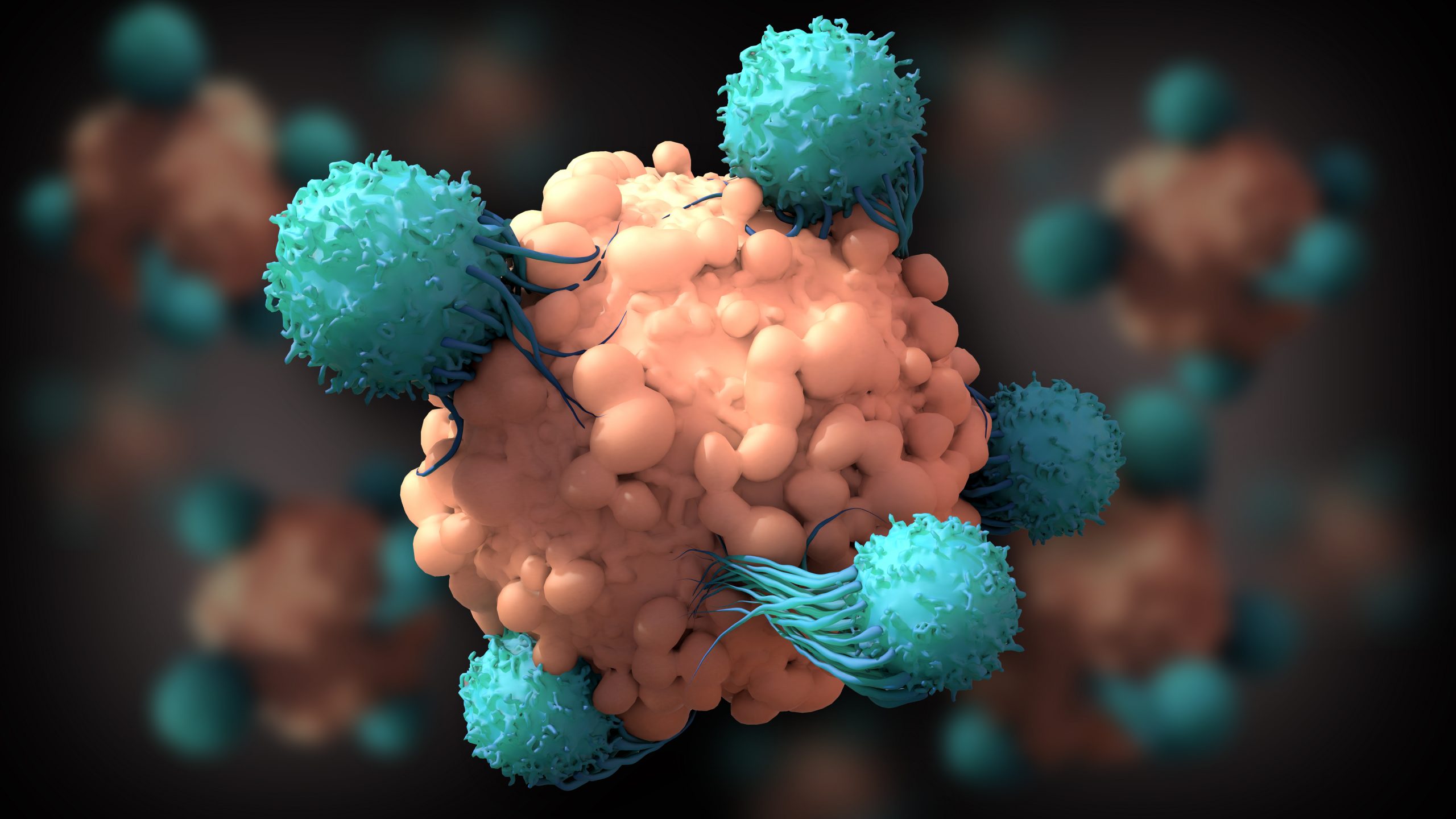Synthetic tumor fragment injection primes T-cells to attack cancer cells
Is it possible to teach the immune system how to both identify cancer tumors and to create the T-cells needed to destroy them? According to SciLifeLab researcher Sara Mangsbo (Uppsala University), the answer is yes. With newly developed technology, the vision to custom-make immunotherapies for cancer may soon become reality.
In their research paper, recently published in Advanced Therapeutics, the Uppsala University based team of researchers presents their optimistic results.
“With the support of SciLifeLab, we have developed a method where we, by injecting a carrier molecule loaded with synthetic peptides, expose the tumor to the immune system. This in turn stimulates the body’s own production of tumor-specific T-cells and leads the already existing T-cells to attack the cancer cell. A lot of work remains, but we are moving quickly in the right direction and if we reach all the way, our platform has the potential to revolutionize the entire cancer care in a cost-effective and time-efficient way”, says Sara Mangsbo in a press release from Uppsala University.
The new technique, called Antibody Drug Affinity Conjugate (ADAC) was developed by Sara Mangsbo. Her immunotherapeutic cancer vaccine delivery-platform, left the SciLifeLab Drug Discovery and Development platform (DDD) in mid 2021 after more than four years of intensive research. In summary, the researchers create synthetic protein fragments similar to those found in patient tumors and then inject them into the patient.
The method exposes the tumor to the immune system, which thus begins to produce completely new, tumor-specific T cells, which in turn helps the already existing T cells to identify and destroy the tumor.
International attention
Their progress with ADAC has been highlighted by both Swedish and international media, and has even caught the attention of the pharmaceutical industry. Presently, their work is progressing within the framework of their own company, Strike Pharma AB. About a year after launch, they have already completed two very successful financing rounds, and presented the venture capital fund Eir Ventures as the new main financier in February.
“We are very impressed by both the ADAC technology and the expertise that Strike Pharma demonstrates. We are also fully convinced that ADAC can take precision medicine to a whole new level, which will also enable the development of other patient-specific, antibody-based treatments with the capacity to respond to a variety of disease indications”, says Magnus Persson, Chairman and co-founder of Eir Ventures.
Last in line to pay attention to their ADAC technology is The Royal Swedish Academy of Engineering Sciences, IVA, which in May placed Sara Mangsbo’s innovation a prominent place on its 100 list of Sweden’s most promising research projects.
“Our place on the 100 list is an extremely important injection in our work to make ADAC and Strike Pharma visible. We are already seeing how more and more people are showing interest in our business, which is both important for future recruitments and adds important energy throughout the organization. Now we continue to develop our technology with a view to clinical studies sometime in 2024 and the forecast looks very promising”, says Sara Mangsbo.
In its selection criteria, the IVA awards “Potential for business development and benefit for users, companies and society” in order to lay the foundation for new bridges between academia and business that can contribute to realizing research with the potential to change the world.
“Now we are diligently working towards the goal of bringing the ADAC technology all the way to the clinic”, says Sara Mangsbo.





